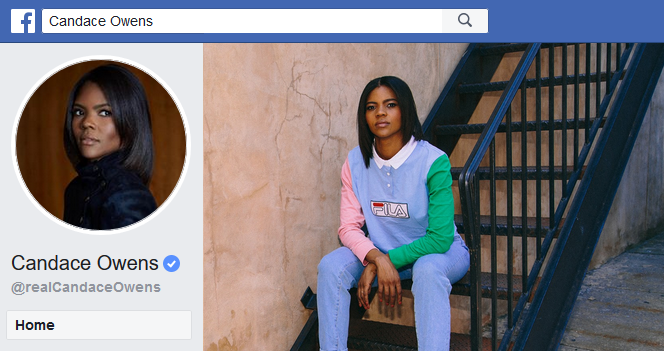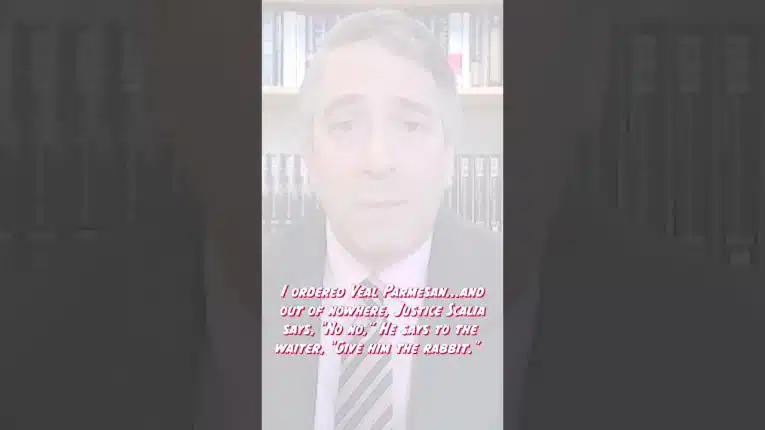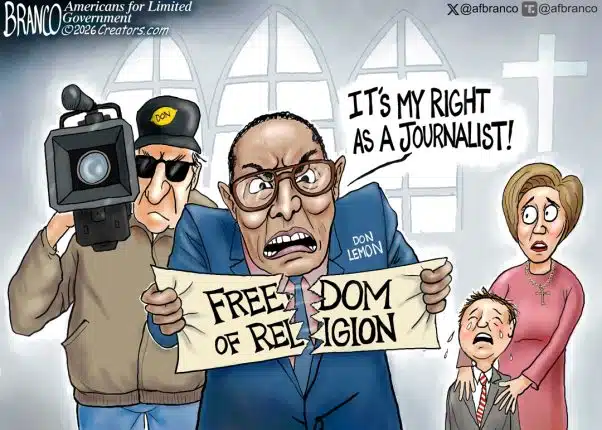Candace Owens’ Facebook page has been restored after a brief suspension after she made a post that liberal policies encourage black fatherless households that contribute to black poverty rates.
And now Facebook is claiming it was all a mistake.
When reached for comment during the suspension, Facebook Public Policy Manager Joshua Althouse told Americans for Limited Government President Rick Manning via an email that her post’s removal and account suspension were “an error.”
Althouse added, “the content and her account are being restored.”
But was it really an error? And if so, was it a technical error or an arbitrary human error?
At first, Owens was told on Facebook that “This post goes against our Community Standards. It looks like some you posted doesn’t follow our Community Standards.”
Owens responded on Twitter, declaring, “Facebook has allowed every post that has falsely and horribly accused @realDonaldTrump of white supremacy to remain on its platform. But when a black woman begins discussing the TRUTH—which is that liberal policies have systematically ruined black homes—they censor. Unfair!”
When Owens tried to open up a ticket and get her privileges restored, she was told, “No one else can see your post. We have community standards to encourage people to respect themselves and connect with each other in any way that’s respectful to everyone.”
Finally, after getting a lot of attention for the meritless suspension, Facebook restored the account on May 17, telling her, “It looks like we made a mistake and removed something you posted on Facebook that didn’t go against our Community Standards. We want to apologize and let you know that we’ve restored your content and removed any blocks on your account related to this incorrect action.”
Owens has close to 1 million followers on Facebook, and for a brief time they essentially had their newspaper censored. So, the harm done was not merely to Owens, it was all of her followers as well. Think of all the work it takes to get to 1 million followers, too.
Americans for Limited Government has paid Facebook for ads in the past to help build the following on our page, so it is not merely a relationship where we’re depending on a free service. We’re customers. We’ve been at this for about 10 years. If we were suddenly censored it would dramatically hurt the organization and our ability to get the word out, no question.
Our position on this is clear. Censorship is wrong and private institutions like Facebook can harm individual rights just as assuredly as government can. Church censorship in the Middle Ages seems to be a good historical example. We opposed ending the Department of Commerce’s contract with the Internet Corporation for Assigned Names and Numbers because we were worried about the antitrust implications of a global monopoly for DNS resolution and the possibility of censorship.
In this case, Facebook is a lot like a public accommodation under federal civil rights law, which bars denying services on the basis of race and sex among other categories. In a statement, Americans for Limited Government’s Manning said, “It is obvious that Ms. Owens is being discriminated against because she is an African-American woman who is challenging liberal orthodoxy.”
This would not be the first time Facebook has gotten in trouble for racial discrimination. The Department of Housing and Urban Development has taken action against the social media giant of discriminatory conduct by those using their platform to sell and rent homes.
Manning said, “Some might argue that as a private platform Facebook is immune from this type of fair housing civil rights violation, however, case law says something different. Under the Fair Housing Act, realtors cannot selectively show houses on the basis of race. The Facebook advertising product clearly falls within civil rights law.”
So, what can be done to prevent this from happening again?
Two things. Congress could define things like section 230 interactive computer services including social media, DNS resolution, domain names and web hosting as public accommodations under civil rights law, so it would not be left up to judges to interpret the law that way and civil protections would extend to users of the Internet in limited circumstances.
And Congress could also include political or ideological affiliation as a protected class under federal civil rights law including housing, banking, education and public accommodations, including the Internet as above.
Doing those two things would stop political deplatforming not just on the Internet, but in financial services, housing and education dead in its tracks by expanding the civil rights franchise. In contrast with potential alternatives like antitrust or declaring social media or the Internet a public utility, this option is narrow and confined to the conduct people are objecting to.
Censorship is wrong and so is discrimination in services provided, whether on the basis of race, sex or politics. It’s time for conservatives to get serious about this issue.
Edited to remove a quote from Cleta Mitchell.
Robert Romano is the Vice President of Public Policy at Americans for Limited Government.







